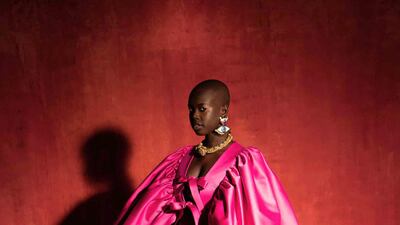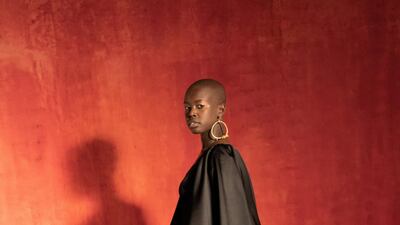The Afghan-British designer Osman Yousefzada is no stranger to tackling difficult issues, as evidenced by the strong narratives that run through his collections.
For his latest autumn / winter 2021 offering, he touches on how some cultures are often passed by, forgotten or worse, still, not given authorship over their own traditions and practices.
Titled Here to Stay, the collection was delivered as a video that took viewers on a visual journey around the world. While the name could be taken as a reference to the changes brought about by the pandemic, it does, in fact, echo the racist turbulence his family faced in the UK.
“These words were a chant that my uncle and elder cousins used in the '80s to fight racism on the streets – against police brutality, against the pay gap and for equal access to education. The chant still feels relevant today," said Yousefzada.

Always eager to support those overlooked, Yousefzada draws in that sense of "other" to this collection. The first dazzling looks are cut from the intricate handmade velvet ikat of Uzbekistan that dance with light and gemstones of ruby, sapphire blue and gold. Cut into decadent coats, belted blazers or puff-sleeved tops held closed with satin ribbon, they beg to be shown off.
Next come pieces covered in the delicate mirror work of the Banjara people of India, now done black on black, as tops or peplum aprons worn over skirts. These are followed by satiny heavy jackets and dresses scattered with symbols of the evil eye, the Hand of Fatima and pomegranates.
Familiar in this region, the evil eye symbol is said to ward off ill intent, while the Hand of Fatima is a potent display of purity, offering protection, power and strength. Representing the Five Pillars of Islam of faith, prayer, pilgrimage, fasting and charity, it is also called Hamsa, meaning five.
The pomegranate, meanwhile, features across Ancient Greek, Persian, Jewish, Hindu and Buddhist cultures as a token of fertility, eternity and fruitfulness.
Now depicted in beautiful beaded handwork, the symbols speak of histories and stories that have existed for hundreds of years.
As with all of Yousefzada’s collections, the focus is on the artisanal quality, as well as telling a wider tale.












